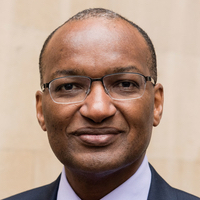Columns
Digital finance is the key to post-pandemic development
As economies become increasingly intertwined, creating global digital-finance ecosystems is essential.
Patrick Njoroge
‘We are experiencing the sharpest decline in per capita income since 1870’, United Nations Secretary-General (UNSG) António Guterres pointed out in a recent speech, warning that the Covid-19 crisis has put 70-100 million people at risk of being pushed into extreme poverty. Preventing that outcome will require concerted and comprehensive action to reboot and rebuild the global economy in a sustainable, inclusive way. Technology—in particular, new digital-finance tools—can play an important role in this process.
During the Covid-19 pandemic, digital services—from telemedicine to remote work to online learning—have been a lifeline for the millions of people subjected to lockdowns and shelter-in-place orders. Digital finance has been essential to facilitate many of these processes, enabling people to pay for goods and services, receive compensation for their work, access social-assistance payments, and secure financial support, such as bank loans, for their distressed businesses.
Even before the pandemic, the need to harness the power of digital finance for the good of the planet and its citizens was increasingly being recognised. Indeed, that was the central goal of the UNSG’s Task Force on Digital Financing of the Sustainable Development Goals, on which I have served for the last 18 months.
The task force includes government ministers, tech entrepreneurs, CEOs of banks and investment institutions, civil society representatives, officials of multilateral institutions, and intellectual leaders. But our forthcoming final report, ‘People’s Money: Harnessing Digitalisation to Finance a Sustainable Future’, focuses on the needs of ordinary people.
The financial system, the report concludes, must serve individual citizens, as savers, investors, borrowers, and taxpayers. It must leverage digital technology to put people back in the driver’s seat of their finances, so that they can invest in themselves and their families, communities, countries, and the planet. Governments, regulators, and financial institutions should support and facilitate the disruptions that will get us there.
There are already useful models of such disruption. Africa—especially my country, Kenya—has led the way in embracing financial technology, beginning with mobile money. Kenya’s M-Pesa—a mobile phone-based money transfer, payments, and micro-financing service—has been a powerful force for expanding financial inclusion. Since 2006, the share of Kenya’s population with access to financial services has surged from 26 percent to more than 82 percent.
Government agencies, too, have embraced online payments—a development that has boosted public confidence in digital financial services. Today, more than 90 percent of payments on Kenya’s centralised e-government platform (eCitizen) involve mobile money.
Government- and central bank-enabled innovation and a learning-by-doing approach have played a major role in driving this progress. For example, Kenya’s M-Akiba, launched in 2017, is the world’s first mobile-only government bond. Unlike existing government bonds, which required a minimum purchase of KES50,000 ($460), M-Akiba allows citizens to invest as little as $30. As a result, Kenya’s capital markets have become accessible to the general population, while the government has unlocked an entirely new investor base. Not surprisingly, 85 percent of those who invested in the initial M-Akiba offering were purchasing government bonds for the first time.
Yet, although Kenya—as well as several other African countries, such as Rwanda, South Africa, and the Seychelles—has made huge strides in seizing the opportunities of financial technology, it still has a long way to go. At a time when economies are becoming increasingly intertwined, and digital business models require economies of scale to thrive, creating regional and even global digital-finance ecosystems is essential.
The Central Bank of Kenya is taking a leading role in this process. In collaboration with the Monetary Authority of Singapore, we are learning how to foster a vibrant financial-technology sector that stretches across Africa and Asia.
The more dynamic and expansive that sector is, the better it will be for our respective populations. After all, bringing the previously unbanked into the financial system directly supports economic growth and the creation of decent jobs, reducing economic inequality, poverty, and hunger. Combined with new digital-finance innovations, greater inclusion can expand access to quality education, clean water and sanitation, and more, thereby improving overall health and wellbeing.
Moreover, by strengthening households’ capacity to save, financial inclusion creates more investable capital, which can be lent to small and medium-size enterprises and finance green infrastructure development. Digital financial innovations connecting people, money, and data help to unlock these investments.
Ensuring that digital financing truly serves the people, however, will require effective oversight. When people gain access to finance for the first time, they are vulnerable to manipulation and exploitation. This is especially true when it happens on a large scale, as market concentration increases the power of large digital-finance platforms, many of which already operate globally.
Unless those platforms are subjected to adequate regulation and monitoring, the consequences will be dire, not only for individual users, but also for sustainable and inclusive economic growth. Developing economies would bear the brunt of these failures.
The Covid-19 crisis is a tragedy. But it is also an opportunity for change. After decades of rising inequality and unsustainable investment, we have the tools and knowhow to do better. We just need the will to use them.
—Project Syndicate




 9.7°C Kathmandu
9.7°C Kathmandu















